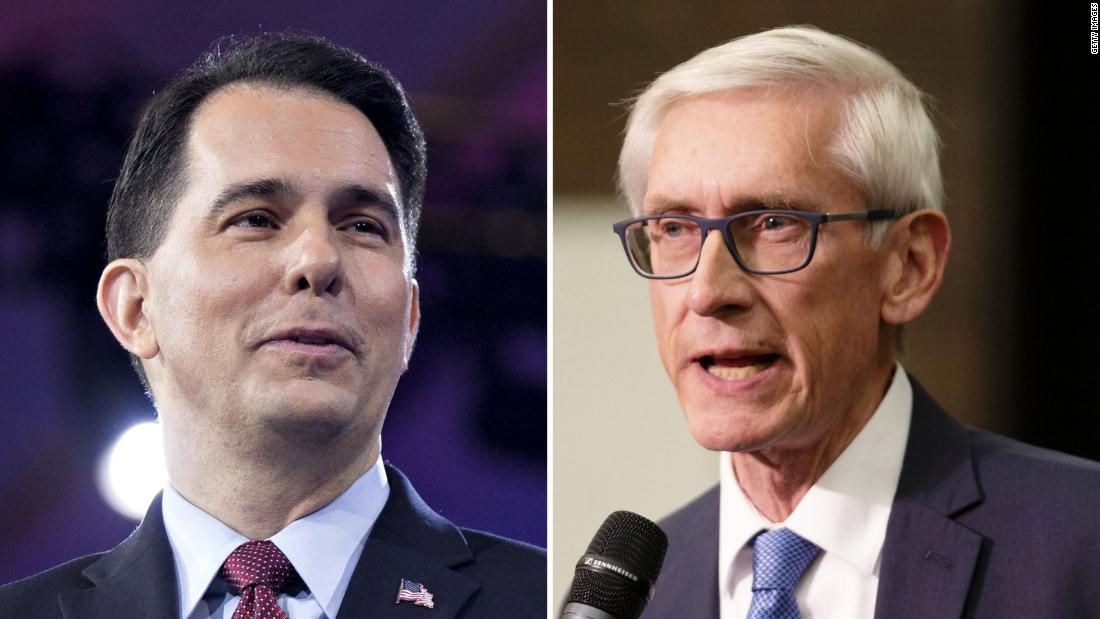
Evers, the Wisconsin state superintendent of public instruction, hammered Walker throughout the campaign as a career politician who has been around too long with too few results. Evers, like Democrats across the country, ran in clear opposition to the Republican health care plan, but he also seized on the widely held view in the state that education had suffered under Walker.
The governor was on defense for much of the campaign, accusing Evers of being a Democrat who wants to raise taxes on all Wisconsinites and arguing that he was wrong about his health care attacks.
Although Walker ran in parallel with Trump for much of the campaign -- the President visited Mosinee, Wisconsin, in late October to rally with Walker -- Evers declined to seize on anti-Trump sentiment in the state and instead argued Trump had little to do with his campaign.
"I don't care about Donald Trump. I am not running against Donald Trump," he told CNN weeks before the election. "He can come every day if he wants to."
Republicans working on gubernatorial races in the midterms acknowledged early in the process that Walker, who was first elected in 2010, was looking to do something difficult by winning the same job three terms in a row. Democrats and Republicans alike argued that so-called "Walker fatigue" would weigh down the former 2016 presidential candidate.
In a subtle acknowledgment of this problem, Walker closed the campaign by talking regularly about Tommy Thompson, the longest serving governor in the state's history who served four terms from 1987 to 2001.
Walker told CNN before Election Day that be believed complacency, not fatigue, was the biggest issue facing his campaign.
"There is a concern that people take things for granted -- a complacency," Walker said. "Things are going well and maybe they are not motivated to see it through and get to the polls."
Walker, though, was asking voters to back him for the fourth time in eight years. After winning in 2010, Democrats looked to recall him in 2012, an effort he eventually successfully beat back. He then won reelection in 2014.
It's that near constant presence on the ballot, Democrats in the state said, that worked against Walker. Evers, while a constant campaigner, was not known for his charisma on the campaign trial, with some of his supporters even describing him a dull.
Even still, Evers' candidacy drew considerable attention from national Democrats. California Sen. Kamala Harris, a possible 2020 candidate, Vermont Sen. Bernie Sanders, another 2020 hopeful, and former President Barack Obama all campaigned for Evers in the waning days of the campaign.
Bagikan Berita Ini















0 Response to "Scott Walker loses bid for third term in Wisconsin"
Post a Comment